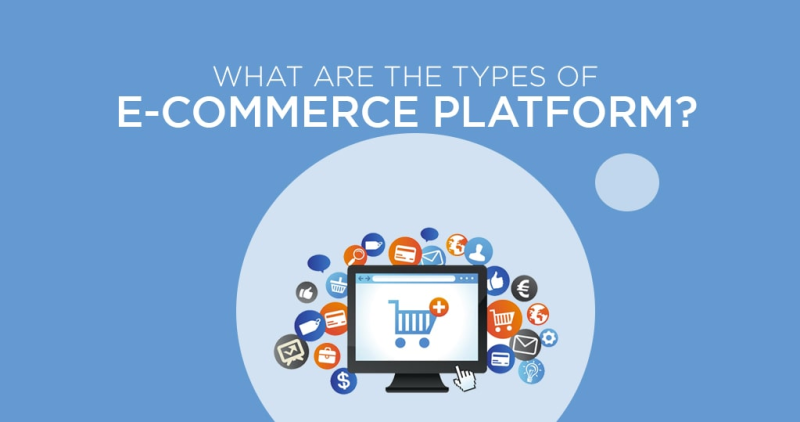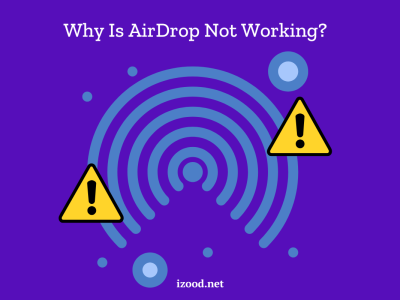
Building an online store can be a lot of work. There are things like designing your website and figuring out how to customize it so that it feels unique and professional, signing up for a payment service, selecting the right e-commerce platform, and coming up with the best business model.
You can also read: The 8 Best Chrome Extensions
The good news is that there are plenty of online resources to help you out! This article will break down the seven best e-commerce platforms and give you a little more insight into each one.
-
Wix
-
Shopify
-
Squarespace
-
Square Online
-
BigCommerce
-
Zyro
-
Big Cartel
What is an E-commerce Platform?
An e-commerce platform is a software application that enables businesses to create an online store and sell their products and services. A good e-commerce platform should provide everything you need to get your online store up and running, including a secure payment gateway, shopping cart, product catalog, and order management system.
There are many different e-commerce platforms available, so it’s important to choose one that’s right for your business. Consider your budget, the features you need, and whether you want a self-hosted or hosted solution.
Self-hosted eCommerce platforms give you more control over your online store but require more technical knowledge to set up and maintain. Hosted eCommerce platforms are easier to use and don’t require any hosting or maintenance on your part.
Once you’ve decided on an eCommerce platform, sign up for a free trial or demo to get started.
What are the different types of e-commerce platforms?
There are four main types of e-commerce platforms: marketplaces, multi-vendor platforms, single-vendor platforms, and B2B e-commerce platforms.
Marketplaces:
A marketplace is an e-commerce platform that enables multiple sellers to list and sell products or services to buyers. The most popular marketplace platforms are Amazon and eBay.
Multi-vendor Platforms:
A multi-vendor platform is an e-commerce platform that enables multiple sellers to list and sell products or services to buyers. The most popular multi-vendor platforms are Shopify and Magento.

Single Vendor Platforms:
A single vendor platform is an e-commerce platform that enables a single seller to list and sell products or services to buyers. The most popular single vendor platforms are Etsy and BigCommerce.
B2B Ecommerce Platforms: A B2B e-commerce platform is an online space where businesses can buy or sell goods and services to other businesses. The most popular B2B e-commerce platforms are Alibaba and Global Sources.
Here are the top 7 E-Commerce Platforms & Website Builders in 2022:
1. Wix
Wix is a hugely popular drag-and-drop website builder and e-commerce platform, with over 110 million users worldwide. Wix knows a thing or two about creating websites and online stores – so much so, that it takes first prize in our e-commerce ratings with an overall score of 4.7 out of 5. They were particularly impressed by Wix’s sales features, which have expanded drastically since we last tested it.
Pros:
- User-friendly
- You can create a website or online store for free with Wix
- Wide range of templates for both websites and online stores
- Sales features are some of the best in the business
- Excellent customer support team
Cons:
- The free version is very limited
- The features are not as comprehensive as some of its competitors
- Cannot switch templates after your website or store is live
2. Shopify
Shopify is the best e-commerce platform for large stores selling over 10 products. It powers over 600,000 online stores and has over 1 million active users worldwide. More than $100 billion has been sold on Shopify – so it must be doing something right! Our research confirmed this. Shopify came second in sales features, scoring 4.5 out of 5 in this category.
Pros:
- Excellent platform for large stores selling over 10 products
- Powers over 600,000 online stores
- Has over 1 million active users worldwide
- More than $100 billion has been sold on Shopify
- Came second in sales features, scoring 4.5 out of 5 in this category
Cons:
- Some users find the platform difficult to use
- The cost of using Shopify can be expensive for some users
- Some users have reported issues with customer support
3. Squarespace
With Squarespace, it’s easy to create a website without any coding skills. With a selection of flexible templates, you can get your store up and running in just a few minutes. It has great tools for managing inventory and will even help you with an SEO strategy to make your site easier to find on search engines. That’s why it sits in third place in our rankings with an overall score of 4.5 out of 5.
Pros:
- Ease of use
- Scalability
- Flexibility
- Reliable support
- Mobile-friendly
Cons:
- Monthly fees
- Limited free themes
- No built-in blog
4. Square Online
Square has been an icon in the payment processing industry for quite some time now. They have partnered with Weebly to produce Square Online, a platform that lets you build your own website and accept payments through Square. The interface is similar to Weebly’s, but there are some great new features that make this a must-have for any business owner or freelancer who wants to save time and money. In this category, Square Online scored an excellent 4.5 out of 5.
Pros:
- Simple and easy to use
- Affordable
- Powerful payment processing
- Great for small businesses
- Free e-commerce plan available
Cons:
- Limited customization options
- Not as many features as some of the other website builders
- Can be a little buggy
5. BigCommerce
BigCommerce is an e-commerce platform with a solution for any type of business. It provides tools for selling anywhere, anytime on multiple channels from a single webstore to a mobile app. Built on the latest web technologies and open-source projects, it’s a feature-rich yet flexible platform that offers anything you need to grow your business. In our research, BigCommerce came first for its sales features, scoring 4.6 out of 5 in this category.
Pros:
- BigCommerce offers a lot of features and options
- The platform is used by some big names
- Online stores using BigCommerce grow at almost double the industry average
- BigCommerce is easy to use
- The platform is affordable
Cons:
- Some users find BigCommerce difficult to use
- The platform can be slow at times
- There have been reports of data loss
6. Zyro
Zyro is a relatively new website builder on the e-commerce scene and has been designed to mimic competitors like Wix and Shopify. It still has some work to do on its e-commerce platform, but has plenty about it that will appeal to the right user, so it’s worth taking a look! unlike Wix, Zyro doesn’t come with any helpful hints and tips to help you out whilst you’re building. Overall, Zyro scored 3.6 out of 5 in our research and testing. Its strongest area is its design functionalities. In this category, we awarded it 4.6 out of 5.
Pros:
- User-friendly interface
- Affordable
- No need for coding knowledge
- Variety of templates to choose from
- Drag-and-drop builder
Cons:
- Limited customization options
- Some features are only available on the paid plan
- Not as many integrations as other platforms
7. Big Cartel
Big Cartel is an easy-to-use e-commerce platform. It also has good analytics tools and a simple design, which means that Big Cartel is not as scalable as other platforms like Shopify or BigCommerce. Still, for those who are enthusiastic about starting their journey with e-commerce and for those who find technology intimidating, Big Cartel does provide some strong features. Scoring 4.4 out of 5 in this category thanks to the variety of high-quality tools it offers to support your store.
Pros:
- Free to use for up to 5 products
- No transaction fees
- Simple and easy to use
- Good for beginners
- Customizable themes
Cons:
- Not very scalable
- Limited features and apps
- Not suitable for large businesses
Conclusion
There you have it — a comprehensive comparison of the best e-commerce platforms out there. While each platform has its own unique features and benefits, they all share one common goal: to help you sell more products online. So, if you’re ready to take your business to the next level, any of these platforms would be a great place to start.

![How to Pause Location on Find My iPhone Without Them Knowing? [2024] 18 how to pause location on find my iphone](https://izood.net/wp-content/uploads/2024/10/How-to-Pause-Location-on-Find-My-iPhone-Without-Them-Knowing-400x300.png)


![How To Inspect Element on iPhone [4 Methods] 21 how to inspect element on iphone](https://izood.net/wp-content/uploads/2024/10/how-to-inspect-element-on-iphone-3-400x300.png)


